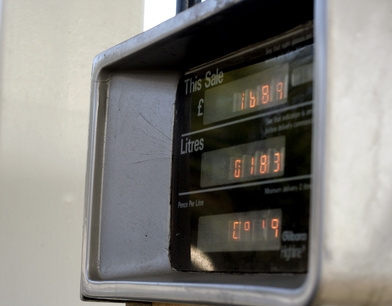
The Ford 351 Engine was first introduced in 1971 and is used as a racing engine. The For 351, like most engines, can be tuned up and adjusted to get better gas mileage. One look through history will show that gas prices vary, but for the most part increase steadily. Fortunately, most of the steps for improving the gas mileage on your 351 Ford are simple and easy to perform without a mechanic.
Consider the vehicle you are driving. Examine your car or truck for any items that are not being used and can be removed. If you have ski racks on the top of your car that you never use, take them off.
Clean and change your fuel filter at least every 30,000 miles. Keeping the fuel lines clean will help your 351 engine process the fuel more efficiently and keep you from having to refill as often.
Stop taxing your 351 engine unnecessarily. This means do not speed up and slow down if you don't need to. Do not exceed the speed limit just to get caught behind a slow moving vehicle.
Do not exceed 55 mph if you can avoid it. Your 351 engine will consume more gas if you drive over 70 mph.
Use the correct motor oil. The 1970s model of the 351 calls for 10w30 in the winter and in the summer. Depending on the year of your 351 engine, the combination will vary. Check the owner's manual to be sure. The right motor oil can save your gas.
Change your air filter at least every 50,000 miles. Keeping the air flow in your engine clean can help the engine run smoothly and decrease the amount of work the engine must do.
Check the condition of your spark plugs every six months for any signs of corrosion. If you notice that the spark plugs are corroded or rusty, change them immediately. Since your spark plugs are what ignited the fuel to keep the engine running, they must be running efficiently to moderate your fuel consumption.
Keep the tires properly inflated. Check the inside label on the door of your vehicle for the recommended amount of air pressure.
Keep the windows closed. Doing this will decrease the amount of air drag on your vehicle which lowers the fuel needed to move your car or truck.